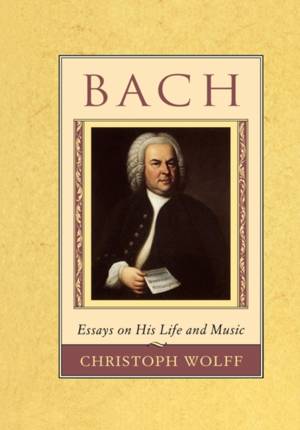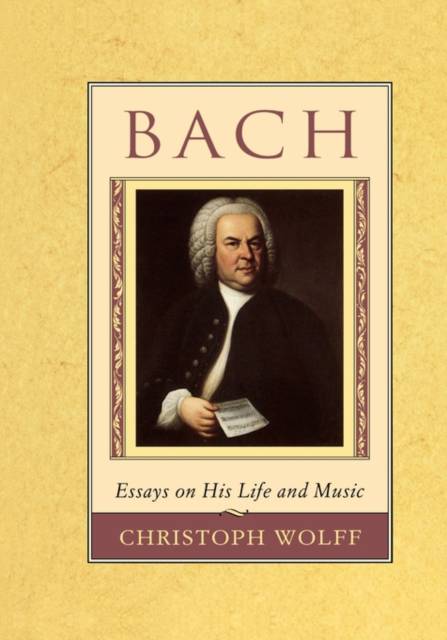
Door een staking bij bpost kan je online bestelling op dit moment iets langer onderweg zijn dan voorzien. Dringend iets nodig? Onze winkels ontvangen jou met open armen!
- Afhalen na 1 uur in een winkel met voorraad
- Gratis thuislevering in België vanaf € 30
- Ruim aanbod met 7 miljoen producten
Door een staking bij bpost kan je online bestelling op dit moment iets langer onderweg zijn dan voorzien. Dringend iets nodig? Onze winkels ontvangen jou met open armen!
- Afhalen na 1 uur in een winkel met voorraad
- Gratis thuislevering in België vanaf € 30
- Ruim aanbod met 7 miljoen producten
Zoeken
Omschrijving
Johann Sebastian Bach holds a singular position in the history of music. A uniquely gifted musician, he combined outstanding performing virtuosity with supreme creative powers and remarkable intellectual discipline. More than two centuries after his lifetime, Bach's work continues to set musical standards.
The noted Bach scholar Christoph Wolff offers in this book new perspectives on the composer's life and remarkable career. Uncovering important historical evidence, the author demonstrates significant influences on Bach's artistic development and brings fresh insight on his work habits, compositional intent, and the musical traditions that shaped Bach's thought. Wolff reveals a composer devoted to an ambitious and highly individual creative approach, one characterized by constant self-criticism and self-challenge, the absorption of new skills and techniques, and the rethinking of riches from the musical past. Readers will find illuminating analyses of some of Bach's greatest music, including the B Minor Mass, important cantatas, keyboard and chamber compositions, the Musical Offering, and the Art of Fugue. Discussion of how these pieces "work" will be helpful to performers--singers, players, conductors--and to everyone interested in exploring the conceptual and contextual aspects of Bach's music. All readers will find especially interesting those essays in which Wolff elaborates on his celebrated discoveries of previously unknown works: notably the fourteen "Goldberg" canons and a collection of thirty-three chorale preludes. Representing twenty-five years of scholarship, these essays--half of which appear here in English for the first time--have established Christoph Wolff as one of the world's preeminent authorities on J. S. Bach. All students, performers, and lovers of Bach's music will find this an engaging and enlightening book.Specificaties
Betrokkenen
- Auteur(s):
- Uitgeverij:
Inhoud
- Aantal bladzijden:
- 480
- Taal:
- Engels
Eigenschappen
- Productcode (EAN):
- 9780674059269
- Verschijningsdatum:
- 1/01/1994
- Uitvoering:
- Paperback
- Formaat:
- Trade paperback (VS)
- Afmetingen:
- 179 mm x 252 mm
- Gewicht:
- 852 g

Alleen bij Standaard Boekhandel
+ 176 punten op je klantenkaart van Standaard Boekhandel
Beoordelingen
We publiceren alleen reviews die voldoen aan de voorwaarden voor reviews. Bekijk onze voorwaarden voor reviews.











